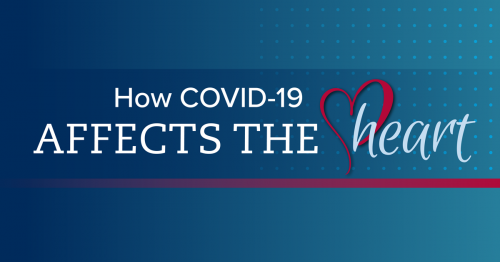The American Heart Association’s annual publication on Heart Disease and Stroke Statistics for 2021 emphasizes that heart disease remains the leading cause of death worldwide.
COVID-19 has taken a huge toll on human life worldwide and is on track to become one of the top three to five causes of death in 2020.
But its influence will directly and indirectly impact rates of cardiovascular disease prevalence and deaths for years to come," says Donald Lloyd-Jones, M.D., ScM, FAHA, president of the American Heart Association and chair of the department of preventive medicine at Northwestern University Feinberg School of Medicine in Chicago.
Not only does research show that COVID-19 itself can cause heart damage, the indirect effects of the pandemic will likely generate an increase in heart health problems, he says. "Unhealthy eating habits, increased consumption of alcohol, lack of physical activity and the mental toll of quarantine isolation and even fear of contracting the virus all can adversely impact a person’s risk for cardiovascular health, he emphasizes. "We’ll need to watch and address these trends as the full ramifications will likely be felt for many years to come."
COVID-19 will impact the risk of experiencing or dying from heart disease or stroke for many years for several reasons.
Unhealthy habits
During extended periods of quarantine or lockdown, many people developed or returned to behaviors related to poor eating, changes in work/sleep habits, lack of regular exercise and the mental stress of social isolation and excessive screen time that could contribute to heart disease and stroke.
Missed medical visits
Many patients postponed regular doctor visits to manage chronic conditions such as heart disease, diabetes and high cholesterol, resulting in an epidemic of poorly controlled disease that can increase the risk of heart attack or stroke.
Fear of hospitals
Data from the American Heart Association show that many individuals experienced a heart attack or stroke during the pandemic and did not seek urgent care out of fear of contracting COVID-19 in a hospital setting. Unfortunately, some people may have experienced medical events with lasting consequences that may have been lessened with prompt treatment.
Heart-related risks for COVID-19 patients
Although studies of the impact of COVID-19 on pre-existing medical conditions are ongoing, the data show that individuals with cardiovascular conditions such as high blood pressure are at increased risk for more severe disease – even death – if they become ill with COVID-19. So its important for everyone eligible to get the COVID-19 vaccine
Young patients with no pre-existing heart ailment getting attacks
Younger people are getting more affected than older people with a known history of heart ailment. There are alarming instances where young patients suddenly develop pulmonary edema — fluid accumulation in the tissue and air spaces of the lungs, leading to impaired breathing and eventually respiratory failure — and almost 70% of them get acute myocarditis (inflammation of the heart muscle), making the chance of their revival thin.
It is fatally affecting young people as low as 33 years old with no earlier signs of a heart disease.
Getting anxiety
Anxiety plays an important role in patients infected by coronavirus infectionas it makes the body’s adrenaline go up, thus spiking the blood pressure and in the process increasing the heart rate, which can be detrimental for a patient infected with the virus.
Warning signs
Those with pre-existing heart ailments watch out for heaviness or shortness of breath and simultaneously check their oxygen saturation on a pulse oximeter before consulting a cardiologist for guidance.Copying prescriptions of patients with similar symptoms should be avoided.

As the threat of COVID-19 continues, doctors and patients are considering the long-term impact of the pandemic on public health, especially heart health.




